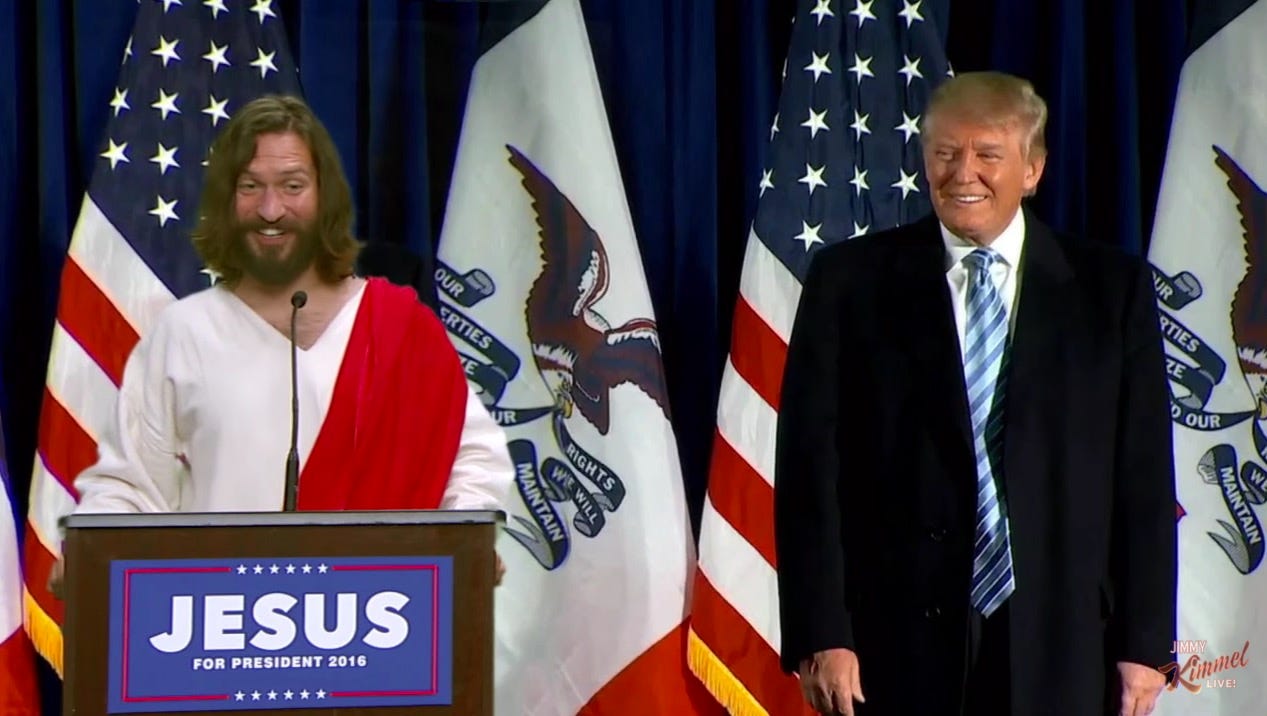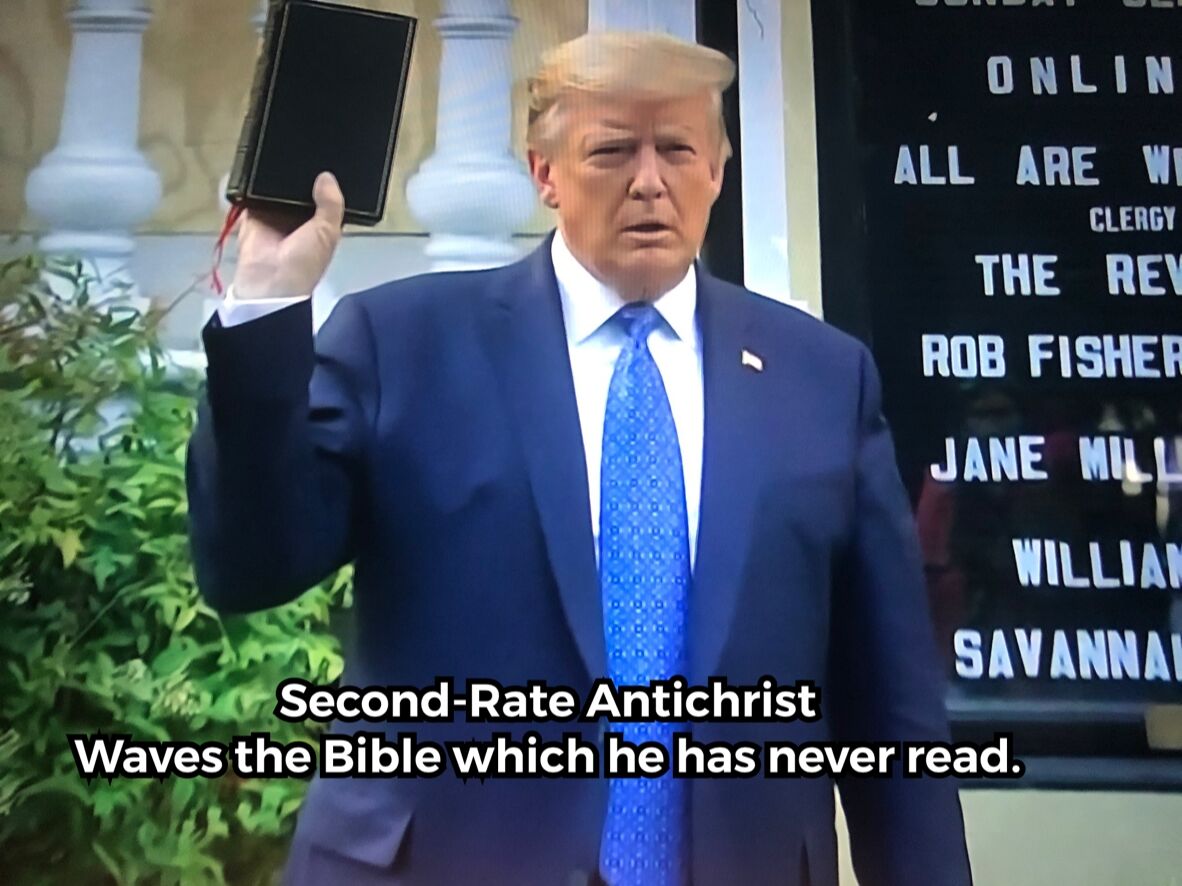Is Donald Trump the Antichrist? The question, though seemingly sensational, taps into deep-seated anxieties and theological interpretations that have captivated minds for centuries, forcing us to confront not only the potential for evil in leadership but also our own spiritual allegiances.
The notion of a figure, the Antichrist, who opposes Christ and deceives many is deeply woven into Christian eschatology. Prophecies in the Book of Revelation and other biblical texts paint a picture of a charismatic leader who rises to power, promising peace but ultimately leading people astray. This figure is often associated with a time of great tribulation and moral decay, culminating in a final battle between good and evil.
The debate surrounding Donald Trump and the Antichrist has intensified, particularly during his presidency and the subsequent legal challenges he has faced. Allegations and accusations of his behavior and words have led some to draw parallels between his actions and the biblical descriptions of the Antichrist.
| Category | Details |
|---|---|
| Full Name | Donald John Trump |
| Date of Birth | June 14, 1946 |
| Place of Birth | Queens, New York City, New York, USA |
| Political Affiliation | Republican |
| Education | Wharton School of the University of Pennsylvania (B.S. in Economics) |
| Career Highlights | Real estate developer, television personality, 45th President of the United States |
| Key Policies/Actions | Tax cuts, deregulation, conservative judicial appointments, withdrawal from international agreements, "America First" foreign policy |
| Controversies | Numerous legal issues, accusations of sexual misconduct, alleged attempts to overturn the 2020 election results, inflammatory rhetoric |
| Link to Reference | White House Archives |
One of the most striking aspects of the discussion surrounding Trump is the diverse range of interpretations. Some see his actions, rhetoric, and legal troubles as evidence of an evil agenda. Others dismiss these claims as the hyperbole of political opponents or the misinterpretations of religious zealots. Some suggest that whether or not Trump is the Antichrist is almost beside the point. What matters is to focus on our faith and not on earthly leaders.
The question of whether Trump fits the bill is complex. While some have drawn parallels between Trump's behavior and biblical descriptions, others point out that many world leaders share similar traits. Some believe that the focus on Trump distracts from more important spiritual matters and that giving him the title of Antichrist may be giving him too much credit.
It is observed that during his presidency, Trump often employed strong rhetoric, sometimes bordering on the theatrical. He has been accused of disrespecting God's law, proclaiming himself the "chosen one," and refusing to place his hand on the Bible.
The response to Trump's actions has been varied. Some Christians have rallied behind him, supporting his policies and defending him against criticism. Others have condemned his actions, seeing them as a betrayal of Christian values. Some theologians and scholars have weighed in, debating the validity of comparing Trump to the Antichrist.
In the analysis of Trump and the Antichrist, it is important to separate metaphorical applications of the term from its specific theological implications within Christian doctrine. It is a crucial point to be made that the biblical narrative always holds that Christ returns victorious and that no human leader, however influential, can thwart the ultimate plan prophesied in scripture.
It's worth noting that this isn't a new phenomenon. Throughout history, various individuals and groups have been identified with the Antichrist, from historical figures like Roman emperors to contemporary political leaders. The papacy, at one time, was identified as the Antichrist.
The question, in reality, may not be whether Trump is the Antichrist, but rather, are we living as citizens of God's kingdom, or have we sold out to the political beast of the moment? The debate encourages self-reflection, the value of critical thinking, and the need to discern truth from falsehood in an age of misinformation.
Many supporters gathered for demonstrations, and the issue of Trump being tied to the Antichrist, as described in the bible, has stirred debate among religious scholars and political commentators. Trump's proclamation of himself being the "chosen one" is typical of antichrist behavior. This has further fueled the debate.
Ultimately, the judgment of whether Trump aligns with biblical prophecies is a matter of personal interpretation. However, the very fact that these discussions continue to take place is a testament to the enduring power of the Antichrist archetype and its resonance with the human experience. It also underscores the importance of engaging with faith, politics, and the complex world around us with discernment, humility, and a commitment to seeking truth.
The narrative that Trump's arrest was an unjust persecution, in the same vein as the crucifixion of Christ, suggests there could be a powerful "resurrection" of Trump and his movement. This comparison, whether intended or not, places Trump within a broader theological framework, inviting believers to see him as a modern-day martyr. The concept of an Antichrist figure often entails a narrative of trials and tribulations. The trials, the controversies, and the investigations into his business practices, his political decisions, and his personal life could be seen as part of a larger, albeit earthly, drama.
Furthermore, the fact that millions of people in America and around the world followed Trump's ascent to power reflects the potential for an Antichrist to "slip" into a position of influence. His words and actions serve as a constant reminder of his persona. His "fruits" are easily identifiable: accusations of rape and sexual assault by more than 20 women, and hundreds of claims of theft from contractors, customers, and employees. Some even suggest that Trump's ascent to power is an excellent example of how the Antichrist could "slip" into the political arena, appearing to offer solutions but ultimately leading to chaos.
The rise of Trump, and the reaction to him, provides a unique case study in how religious, political, and cultural forces can converge to shape perceptions of good and evil, truth and falsehood, and the very nature of leadership itself. This is why it is crucial to differentiate between metaphorical applications of the term and its specific theological implications within Christian doctrine. It is important to remember that the ultimate hope should be kept on Jesus, not on earthly rulers.
Regardless of how individuals and organizations respond to the idea of Donald Trump as a person with the potential to be the Antichrist, one thing is certain: The debate reflects the enduring human desire for meaning, the persistent struggle between good and evil, and the ever-present need to seek a deeper understanding of the world and our place within it.
In essence, the discussion surrounding Donald Trump and the Antichrist is a complex interplay of faith, politics, and personal interpretation, highlighting the importance of critical thinking, spiritual discernment, and a commitment to seeking truth in a world often filled with uncertainty and deception.


